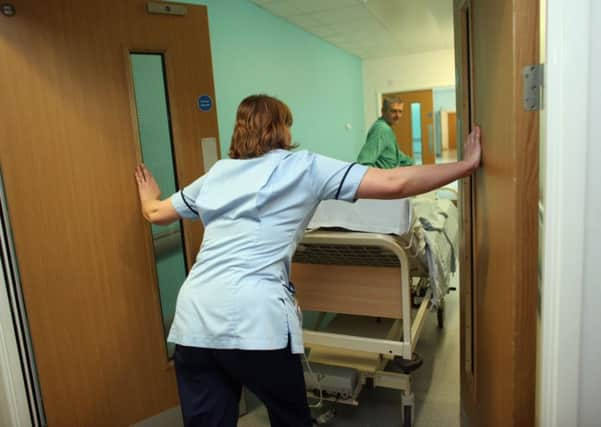Kenny MacAskill: NHS Scotland is a sinking ship


It should also be made clear that it’s a service I hold in high regard having been nourished by it, seen my children born in it and watched my parents die in its tender care.
That’s the same for many others and why it’s revered. Preserving the intention of Nye Bevan – of a service free at the point of delivery – is something to be cherished.
Advertisement
Hide AdAdvertisement
Hide AdBut, the crewing of the ship needs to change and perhaps even more importantly the expectations, responsibilities and behaviour of passengers aboard more so.
In England they seem to set to follow in the US wake, with the privatisation of the fleet, throwing stowaways overboard and making treatment for those travelling in steerage class truly third rate. In the USA, it seems, the latter class are to be devoid of any medical care at all on board life’s journey.
In many ways national health services are victims of their own success. Longer life expectancy and huge improvements in medical science have resulted in a rise in the number of patients and also increased the complexity and cost of treatment. Yet, treat them they do and more often than not successfully, but again this increases the pressure on the service. Better health care has helped create a growing elderly population with the associated challenges that old age brings.
That’s probably the single biggest problem the service faces and there’s no pill or wonder cure for it. Bed blocking and the effects of isolation rank high on troubles for the NHS. It’s often not high-tech equipment but personal care that’s needed.
But, as with the police, when all else fails they are a service of last resort for the vulnerable.
Expectations have increased and so has demand. As soon as a new cure is devised, then treatment is expected. The cost or efficacy of it is ignored by the desperate and their anxious loved ones as well as opposition politicians of whatever party. Frequently, such pressure means decisions by bodies that were established to try and balance individual need with wider public good are overruled. High-cost treatments with limited wider impact are provided.
Broader actions on smoking, diet, alcohol and exercise can be cut as a consequence. Social ills such as obesity, bad diet, lack of exercise, and drug and alcohol abuse impact hugely and disproportionately on the service. The solution is sometimes not even within the capabilities of the health service but dependent on the individual.
Scotland may be in calmer waters than elsewhere but issues still remain from a lack of GPs to meeting targets. The pressures are only going to increase so a new route needs to be charted.
Advertisement
Hide AdAdvertisement
Hide AdTo date the solution has been to simply increase funding for the NHS. That has offset some inbuilt health service inflation but the increase in public sector pay will take up some of those funds.
So there has to be change in how HMS Health is sailed and, just as importantly, in the actions and expectations of passengers as we all are.
There’s a structural issue in terms of too many captains and not enough crew. The 14 Health Boards, all with chief executives and sundry support, are an anachronism. There must be a simpler way to have local accountability but achieve economies of scale. Other public sector agencies have been reformed yet health has appeared sacrosanct. There has to be change.
It’s not just the bureaucracy but how it’s delivered that needs addressed. Ensuring that social services take the strain off bed-blocking is essential. There’s a crisis in GP services but some of that is down to some young graduates prefering to work in hospitals rather than surgeries. Giving nurses more responsibilities is therefore not just reasonable but essential.
But, all that said, there’s still got to be a change in actions and expectations by all. As an MSP I raised constituents’ concerns with the health service. Occasionally there was negligence or failure, but more often unreasonable demands or unrealistic expectations. Fertility treatment for those over the set age; maintenance of gastric bands installed privately where a warning was given on after-care being required; operations refused as the issue was the constituent’s weight, not the lack of surgery; and even non-essential cosmetic surgery demanded. The list of possible medical actions is growing and so too are the demands for treatment.
The NHS in Scotland will rightly continue to try and treat all but not every demand can or should be met. That shouldn’t mean an abrogation of treatment even if self-inflicted. Common humanity dictates that and human failings are accepted.
Opposition politicians need to be mindful of the national interest and, as a consequence, the best available and affordable treatment will be available for all. Ensuring adequate support for preventive health measures is ever more vital. Stopping smoking, drinking less, exercising more and eating better are steps we all should take, for the sake of ourselves and the NHS. Some may need support to do that, while others just need to change their ways.
So, it’s not a change in course that’s needed but in expectations and actions by all. That way we can maintain the best possible treatment for everyone.